Are you navigating the complexities of disability accommodations in the workplace? It can often feel overwhelming, but understanding your rights and options is essential. Crafting an effective letter to request accommodations is a key step in ensuring your needs are met while maintaining a productive work environment. Ready to learn how to create a compelling request that covers all the bases? Keep reading for tips and a template that will guide you through the process!
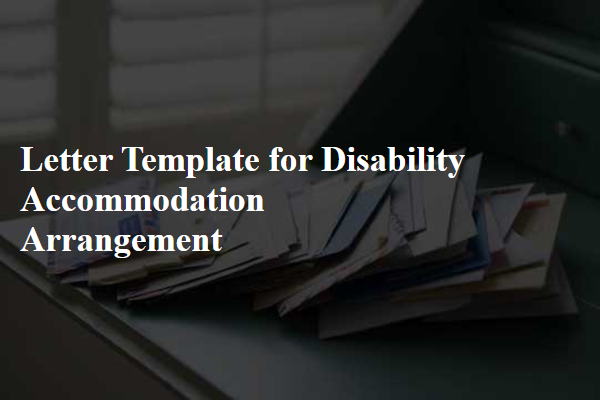
Clear Subject Line
Subject: Request for Disability Accommodation Arrangement Individuals with disabilities often require specific arrangements to ensure equal access to resources and environments. For instance, accessibility features such as wheelchair ramps, designated parking spaces, and audio-visual aids in classrooms are crucial. The Americans with Disabilities Act (ADA) mandates these accommodations in public spaces throughout the United States, promoting inclusivity. Accessible technology, including screen readers and speech recognition software, plays a vital role in enabling individuals with visual or mobility impairments to operate computers and engage with digital content effectively. Timely communication with the relevant authorities or organizations is essential to arrange these accommodations, ensuring individuals receive the necessary support for their unique needs.
Personal Information
Requesting disability accommodation arrangements involves providing detailed personal information to ensure proper understanding and assistance. Include full name, contact information (phone number and email address), and mailing address (street, city, state, and zip code). Specify disability type (for example, mobility impairment or visual disability), highlighting specific limitations or challenges encountered in a work or academic environment. Indicate relevant medical documentation or professional evaluations that support the accommodation request. Mention the length of time the disability has been present and any previous accommodations utilized. Specify the required accommodations, such as modified workstations, flexible hours, or assistive technology. Providing this comprehensive personal information aids in facilitating the necessary support and adjustments.
Detailed Accommodation Request
Individuals seeking disability accommodations often face various challenges that require tailored solutions in educational or workplace settings. A detailed accommodation request outlines specific needs related to medical conditions or disabilities, including physical, mental, or sensory impairments. Suggested accommodations may involve modifications such as extended deadlines for assignments, preferential seating arrangements in classrooms, or ergonomic equipment in office environments. In higher education institutions, like University of California, students might request alternative testing methods, including extended time or quiet environments to reduce distractions. Clear documentation from healthcare professionals supporting the need for accommodations is often required, ensuring that the extent of the disability is communicated effectively. Timely submission of these requests to relevant authorities, like the Disability Services Office, ensures compliance with legal frameworks such as the Americans with Disabilities Act (ADA), promoting inclusivity and equal opportunities for all individuals.
Medical Documentation
Disability accommodations often require specific medical documentation to support requests for adjustments in workplace settings, educational institutions, or public services. Properly formatted documentation should include the healthcare provider's name, qualifications, and contact information, clearly outlining the individual's disability diagnosis, including any related codes such as ICD-10. The extent of functional limitations must be defined, indicating how these limitations impact daily activities and performance in specific environments, such as a workplace or classroom. Recommendations for accommodations should also be detailed, specifying adjustments that would effectively support the individual's needs, such as modified work schedules, assistive technology, or accessible facilities, thereby promoting a more inclusive environment.
Contact Information for Follow-Up
In the context of arranging disability accommodations, providing clear contact information is essential. A designated representative should be assigned for follow-up communications. Include their full name, office title, and department within the organization. The physical address of the office, including building number and zip code, should be specified for formal correspondence. A direct phone line, along with an email address, should be mentioned for immediate inquiries. Additionally, include the organization's main office contact number, ensuring accessibility for all individuals needing assistance. This information should remain consistent across all accommodations-related documentation to prevent confusion and facilitate an efficient communication process.
Letter Template For Disability Accommodation Arrangement Samples
Letter template of request for disability accommodation in the workplace.
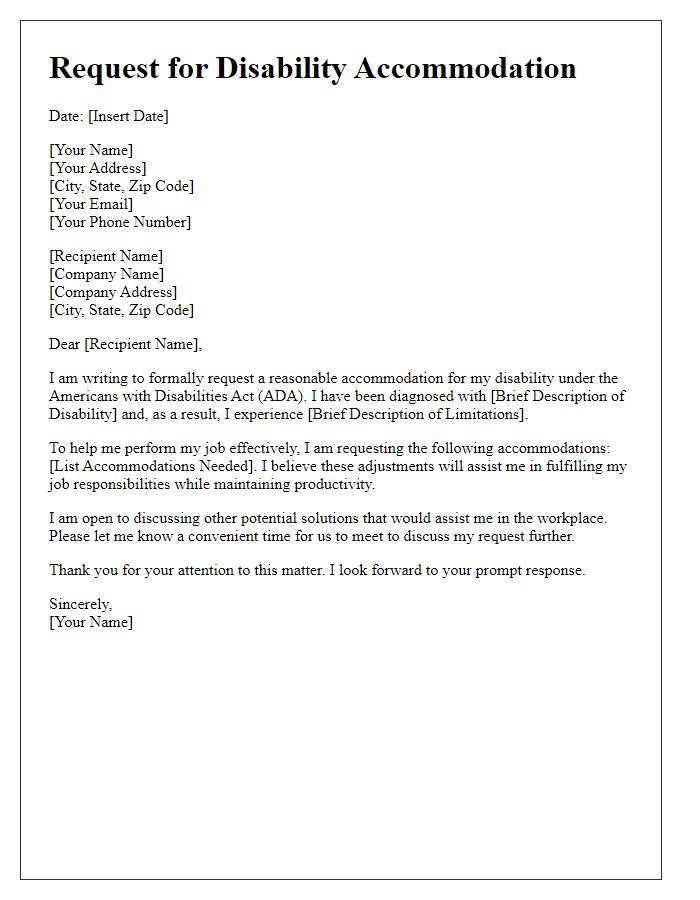
Letter template of formal notification for disability accommodation needs.
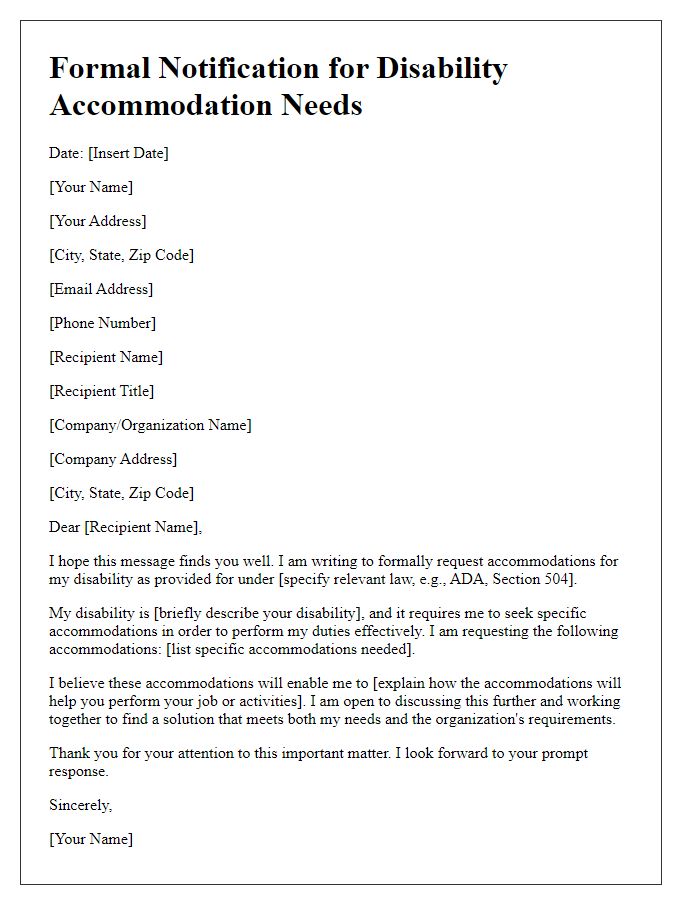
Letter template of appeal for additional disability accommodations at school.
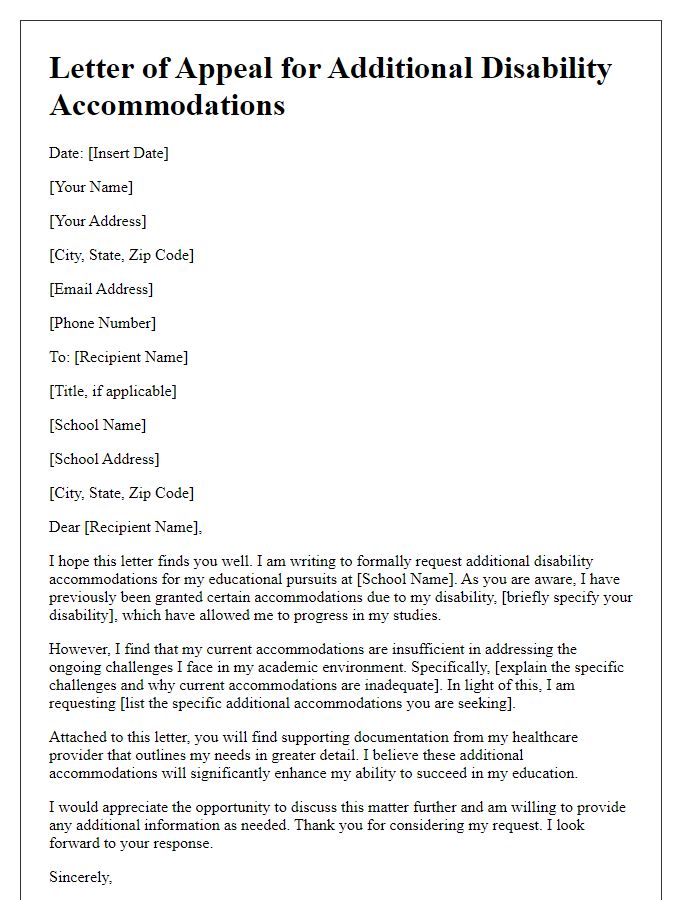
Letter template of complaint regarding insufficient disability accommodations.
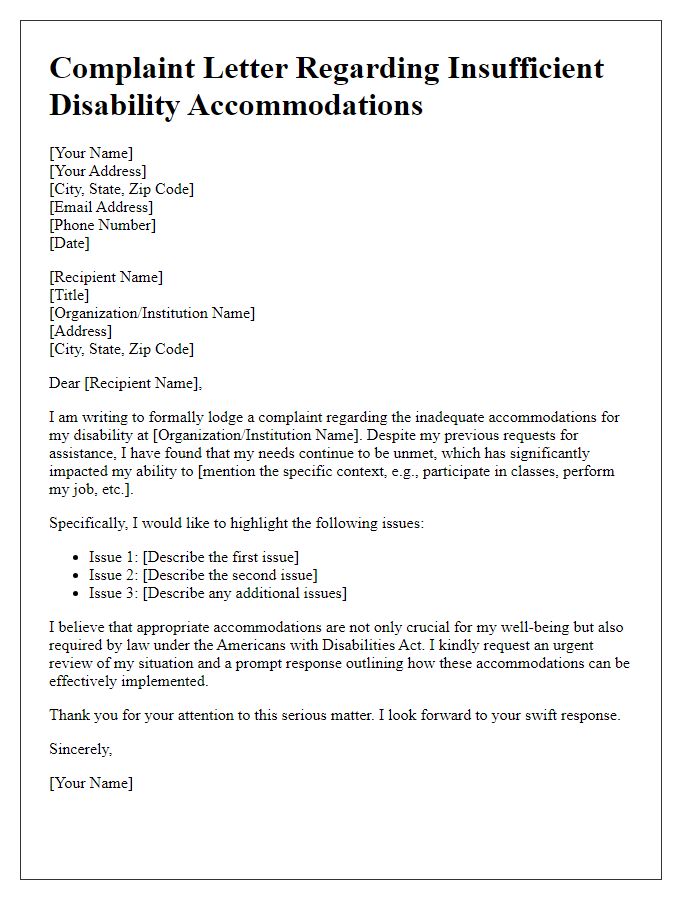

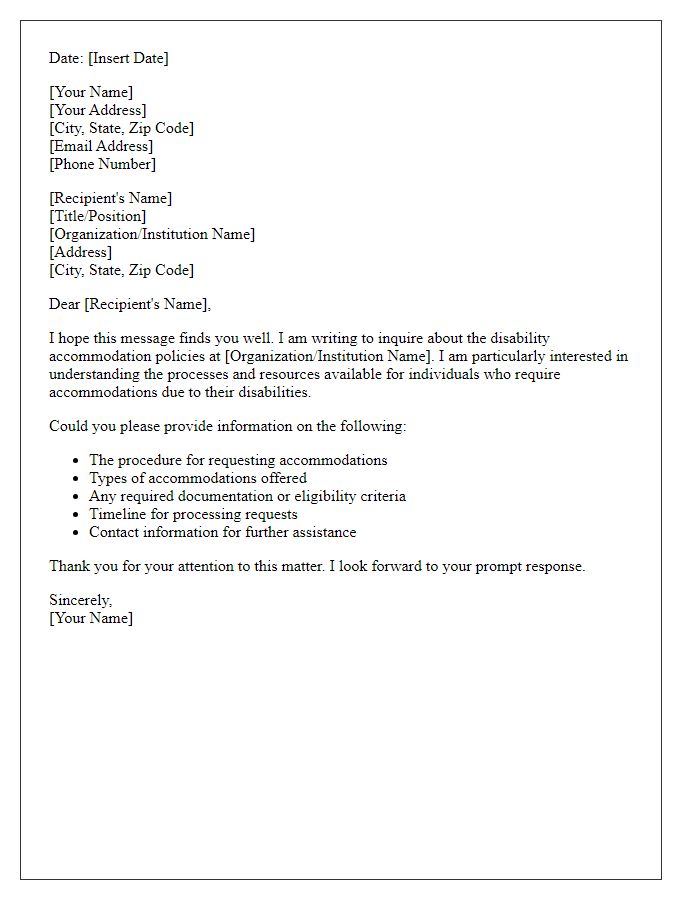
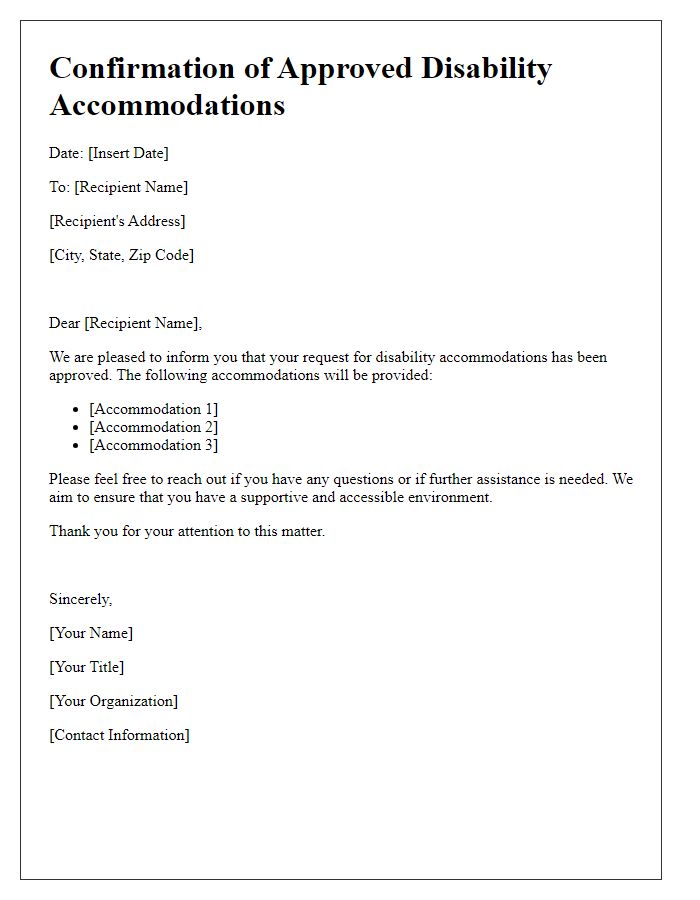
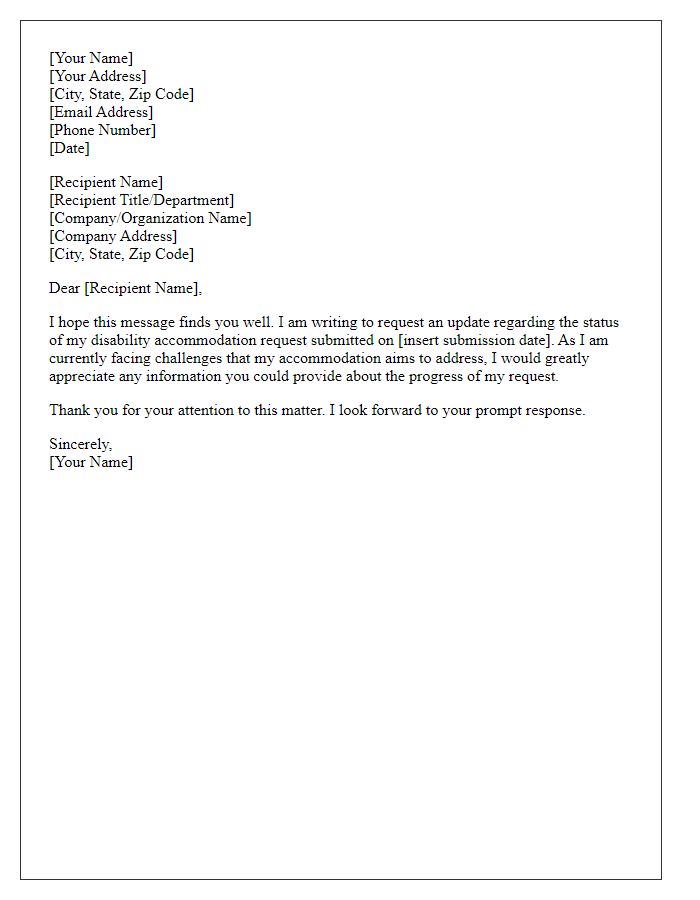
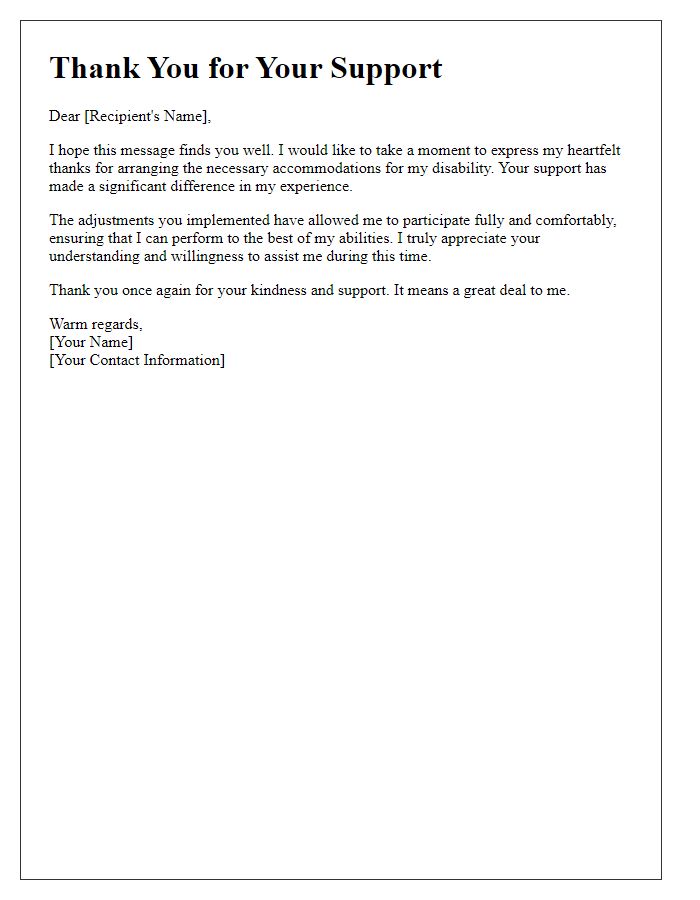
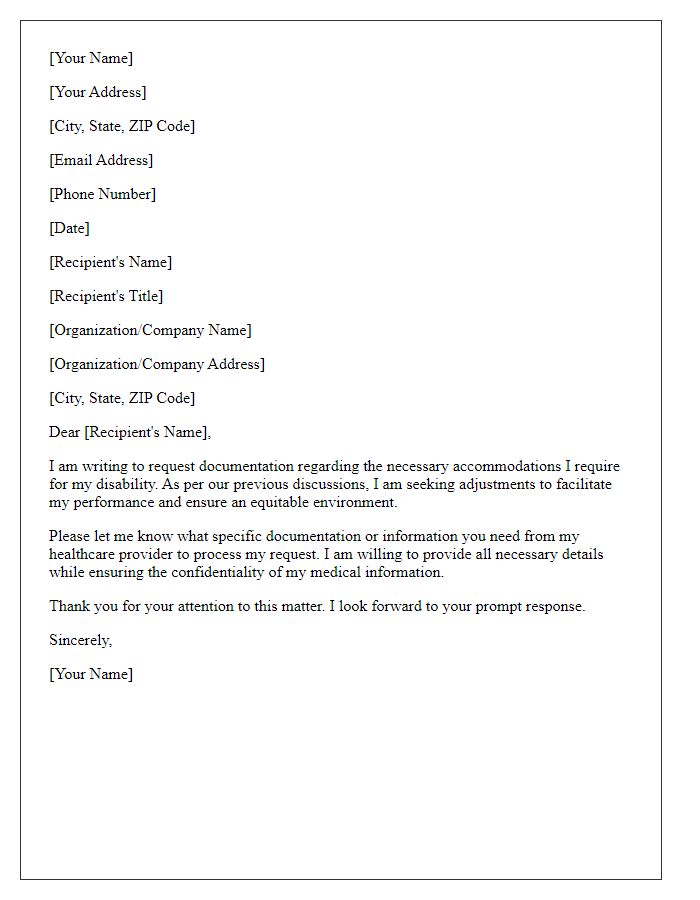
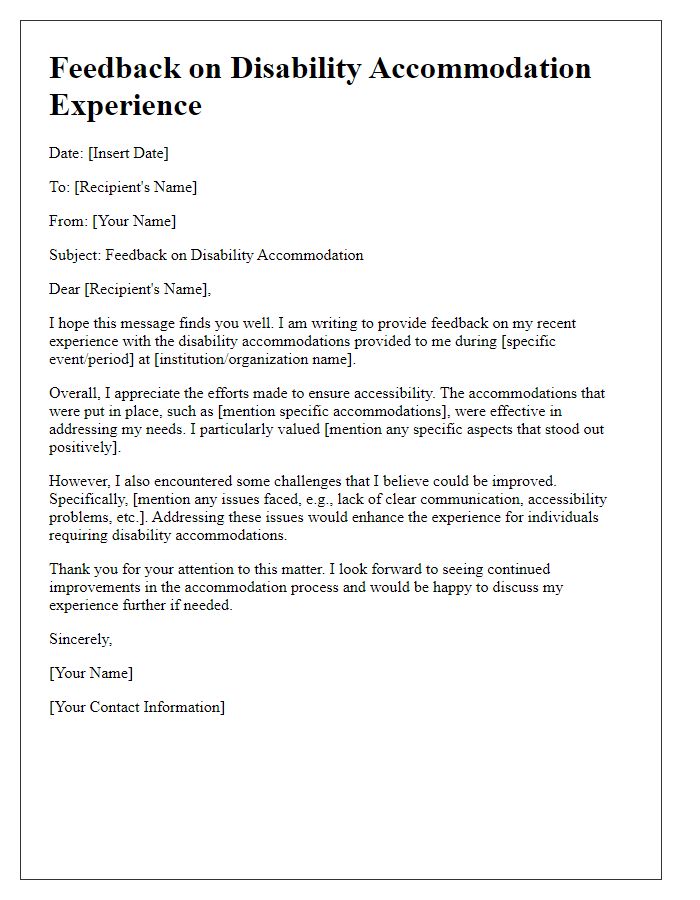

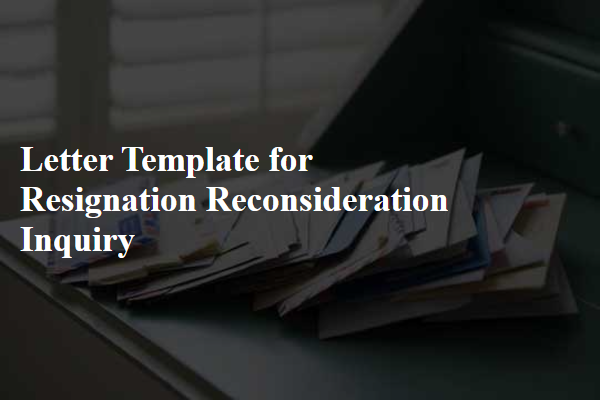
Comments